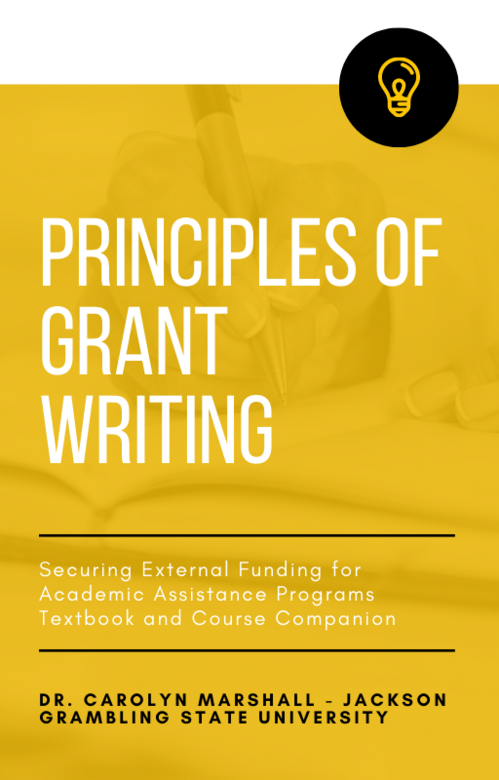- Author:
- Carolyn Jackson
- Subject:
- Communication, Higher Education
- Material Type:
- Assessment, Homework/Assignment, Lecture Notes, Module
- Level:
- Graduate / Professional
- Tags:
- License:
- Creative Commons Attribution Non-Commercial Share Alike
- Language:
- English
DEED 601 Module 1 Grant Selection Forum
DEED 601 - Module 2 Discussion Forum
DEED 601 Module 2 Info, Assess, Assign
DEED 601 Module 3 Assignment - Logic Module
DEED 601 Module 3 IAssignment - Intended Impact and Theory of Change
DEED 601 Module 3 Info, Assess, Assign
DEED 601 Module 4 Assignment - Implementation Plan
DEED 601 Module 4 Info, Assign, Assess - Logic Module
DEED 601 Module 5 Assignment - Evaluation Plan
DEED 601 Module 5 Info, Assign, Assess
DEED 601 Module 6 Assignment - Budget
DEED 601 Module 6 Info, Assign, Assess
DEED 601 Module 7 Assignment - Mock Grant Proposal
DEED 601 Module 7- Info, Assign, Assess
DEED 601 Module 8 Assignment- Things You Learned
DEED 601 Module 8 Info, Assign, Assess
DEED 601 Syllabus
Module 1 Info, Assess, Assign
DEED 601 Principles of Grant Writing - Ancillary Materials

Overview
These materials support the creation of and can be used with the DEED 601 - Principles of Grant Writing and Fundraising online course.
DEED 601 Syllabus
This course syllabus provides students with important information about the course structure, requirements and other important information. The syllabus agreement should be signed before moving on to Module 1.
DEED 601 Module 1
This module introduces you to the course and provides a general overview of what grants are, who awards them and how you might find grant opportunities. This information helps to form the foundational principles that you will build upon as you progress through this course. You will use this information to seek out a grant opportunity and prepare a mock grant proposal for your final project.
DEED 601 Module 2
In this module information related to the “meat” of your proposal – the proposal narrative – is discussed. Topics covered will help you turn your idea into an award winning grant proposal. You will learn tools to help you clearly articulate your organization’s mission. In addtion, you will be aided in describing how your mission makes your organization keenly suited to addressing an identified problem.
DEED 601 Module 3
In module 3 you will learn how to prepare a logic model and articulate the Theory of Change for your proposed project. These two items provide potential funders with a clear depiction of how their contribution of financial resources will lead to long-term results.
DEED 601 Module 4
It is important that grant writers include detailed implementation and management plans that describe proposed activities, including scope, sequence and anticipated completion dates of said activities. This module teaches you how to do just that. Carefully outlining this information in your grant proposal demonstrates to potential funders that you have a feasible plan of action to effectivelymeet the stated goals of your proposed project.
DEED 601 Module 5
Conducting an evaluation of your grant project will likely be required by funders and therefore it will be a critical component of your mock grant proposal. This module introduces the concepts related to preparing an evaluation plan that assures funders that you intend to examine and assess specific aspects of your project in order to obtain information (data) to improve your project's processes and outcomes during both project development and implementation.
DEED 601 Module 6
The budget summary and narrative together provide critical details related to the efficacy and ability of you organization to carry out the proposed implementation plan. This module describes how to craft a budget that will demonstrate to potential funders, the project's estimated costs and adherence to grant requirements and guidelines. Moreover, the module stresses the importance of ensuring your budget is feasible to accomplish goals and that your organization is fiscally responsible.
DEED 601 Module 7
In this module, you will put all the pieces of your grant proposal together. Taking the extra time needed to accomplish such tasks as proofreading and checking for required and optional grant components will prove to be extremely beneficial to the success of your grant proposal.
DEED 601 Module 8
Module 8 covers the grant review process, the benefits of serving as a grant reviewer and what to do (or how to handle it) if your proposal is not funded.